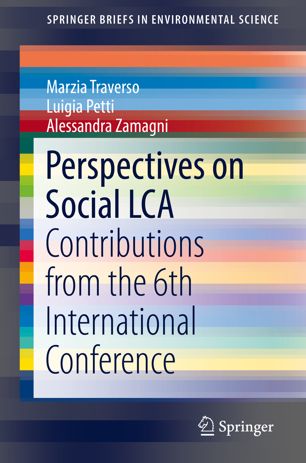

Most ebook files are in PDF format, so you can easily read them using various software such as Foxit Reader or directly on the Google Chrome browser.
Some ebook files are released by publishers in other formats such as .awz, .mobi, .epub, .fb2, etc. You may need to install specific software to read these formats on mobile/PC, such as Calibre.
Please read the tutorial at this link. https://ebooknice.com/page/post?id=faq
We offer FREE conversion to the popular formats you request; however, this may take some time. Therefore, right after payment, please email us, and we will try to provide the service as quickly as possible.
For some exceptional file formats or broken links (if any), please refrain from opening any disputes. Instead, email us first, and we will try to assist within a maximum of 6 hours.
EbookNice Team

Status:
Available5.0
14 reviewsThis book gives a selection of contributions from the 6th Social Life Cycle Assessment (S-LCA) Conference in Pescara, Italy. S-LCA is a social (real and potential) impact assessment method that aims to drive improvements in order to increase the value of products and services. It helps organizations to plan better, implement more effectively, and promote scale initiatives. More in general, the assessment activity also facilitates accountability and supports stakeholder communication.
Consumers are greatly aware of the provenance of the goods they purchase. They have greater access to product information than ever before, also thanks to the new digital platforms. They are also empowered to make more responsible purchase decisions about what concerns sustainability aspects. Therefore the need to linger on the social aspects has been emerging recently. Although the business evolution of environmental methods and metrics has advanced significantly over the past decades, tools and metrics to estimate the social aspects of products and services are in progress.
In this volume several sections provide methodological developments and tool focus, contextualizing S-LCA scientifically and explore the fields of applications. Through current development (conferences, articles, seminars and industry group publications), the method is spreading, evolving and gaining in maturity. However, it still is an evolving field, and main developments foresee, both at the level of methodology and results, interpretation and communication in order to find a path forward. S-LCA has been changing since the beginnings. From our observations as educators, researchers, practitioners, and peer reviewers in the S-LCA community, there are trends that are of importance us.